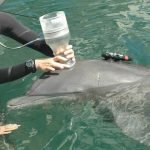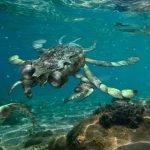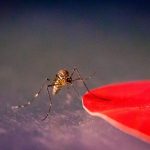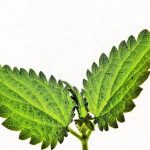Scientists find better way to calculate fuel efficiency for dolphins
Researchers use noninvasive movement tags and a device that measures oxygen consumption to assess how much energy a dolphin uses while swimming.
From foraging for...
This dinosaur era crab was sharp-eyed, speedy swimmer
With its adorable big eyes, this predator seemed more Disney than deadly.
A crab roughly the size of a quarter was found in the waters...
Scientists find the way to help dogs lose weight safely
Overfed dogs experience some of the same maladies associated with overweight and obesity in humans.
In a new study from the University of Illinois Urbana-Champaign,...
Mosquitoes have color preferences. Could we hide from them?
Beating the bite of mosquitoes this spring and summer could hinge on your attire and your skin.
New research led by scientists at the University...
What is your dog’s lifespan? You might be surprised
How old is your dog in human years? And what factors contribute to a long and healthy life for a dog?
For years, it’s been...
4 ways pets are good for your health and well-being
Many pet owners have found support from their pets throughout the COVID-19 pandemic, and there’s science to back up the physical and mental health...
After thousands of years, an iconic whale confronts a new enemy
The iconic tusked whale of the Arctic has a new enemy – noise.
A new study shows that narwhals are highly affected by noise...
Most dog breeds are highly inbred, shows study
Dog breeds are often recognized for distinctive traits — the short legs of a dachshund, wrinkled face of a pug, spotted coat of a...
Scientist find snow monkeys go fishing to survive harsh winters
Snow monkeys living in one of the world’s coldest regions survive by ‘going fishing’ – scooping live animals, including brown trout, out of Japanese...
This native American plant med can treat pain and diarrhea
In a new study from the University of California, Irvine, researchers found how plants with a long history of use by Native Americans worked...









